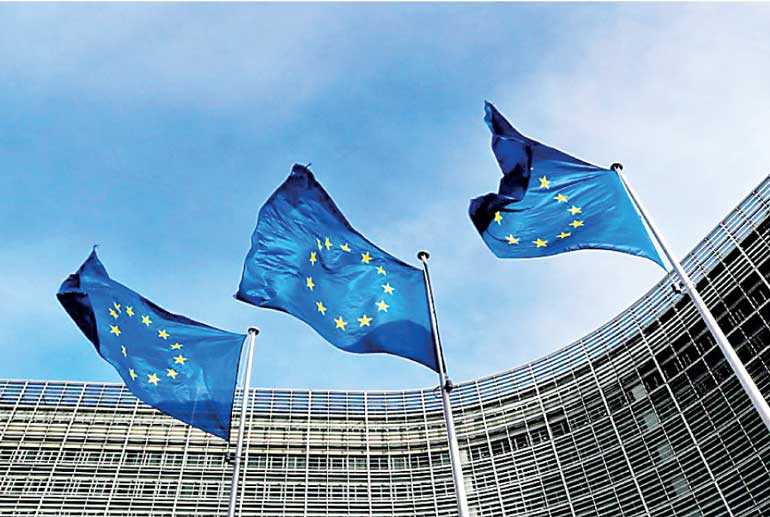Thursday Feb 19, 2026
Thursday Feb 19, 2026
Monday, 14 May 2018 00:00 - - {{hitsCtrl.values.hits}}

European Union flags flutter outside the EU Commission headquarters in Brussels, Belgium, 12 March, 2018 – REUTERS
BRUSSELS (Reuters): EU ambassadors have backed watered-down proposals to tackle unfair competition from foreign airlines following opposition from some member states to the threat of revoking flying rights across the bloc, six people familiar with the matter said.
European Union members are considering a legislative proposal that would allow EU governments or airlines to submit complaints to the European Commission about any alleged discriminatory practices they face in non-EU countries or illegal subsidies benefiting non-EU airlines.
While some countries, such as France and Germany, and the European Parliament, have pushed for airlines’ flying rights to be revoked if they are found to be causing injury - or even a threat of injury - to European carriers, other member states have staunchly opposed this.
Flying rights are typically granted on a bilateral basis between governments.
Some EU airlines, notably Air France-KLM and Lufthansa, have long complained about what they see as unfair competition from foreign carriers such as those in the Gulf region – Emirates, Etihad and Qatar Airways - which they accuse of receiving illegal state subsidies.
The three airlines strongly deny such claims.
Under the text agreed on Friday and which still needs to be endorsed by ministers in June, the prospect of withdrawing traffic rights is explicitly excluded and the possibility of launching an investigation based on a “threat of injury” to EU carriers has been removed, three of the people said.
The original Commission proposal did not explicitly exclude the suspension of traffic rights as a possible redressive measure, while the European Parliament included that possibility when it voted on its position in March.
Once ministers give their approval, EU member states will be able to start negotiations with the Parliament to find a final compromise on the draft law.
The version backed by EU ambassadors also gives national governments a say in whether to impose operational penalties on a foreign airline, such as suspending some ground-handling services, whereas the Commission will have the sole authority to impose financial sanctions, the people said.
The investigation period was also shortened to 18 months from the proposed two years.
Furthermore, “concerned” countries will be able to ask the Commission to suspend its investigation into a third country or airline for up to 12 months if there are dispute settlement procedures in a bilateral deal between that third country and an EU country that will be exhausted first, one of the people said.
Some countries had feared the original proposals would interfere with their bilateral arrangements and lead third countries to take retaliatory measures against them.
Some also saw it as a protectionist move to shield uncompetitive European carriers, something the Commission denies.